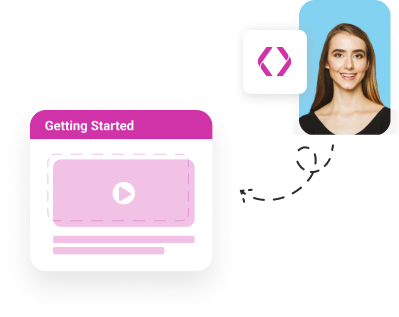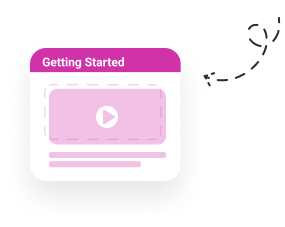Working with Titan Modals in Salesforce

Hawk-eye editor with a passion for trailblazing Salesforce experiences
What is a Modal in Titan?
In simple terms, a modal (also called a modal window) is a web page element that deactivates the standard content page and requires the end user to interact with the content in the modal to go back to the main window.
The benefit of using modals is directing the users’ attention to a significant action or piece of information on a website or application.
Modals have many advantages that benefit your marketing strategies and enhance your end-user experience.
Use of Page and Custom Modal in Titan
Titan Web provides users with a no-code option to build custom web applications with bi-directional Salesforce integration.
Use modals to create web page elements that pop up in front of the main body of content.
With just a few clicks, you can achieve this with Titan’s custom and page modal, and you can customize the modal layout by deciding which fields you want to include and how those fields should appear.
Keep reading to learn the uses and benefits of the features of using a page or custom modal in Titan Web to your advantage and how it can improve your business.
Page Modals
You can create and customize the page modal with no code in a few clicks.
Create a new page in your project and open it as a modal.
In the page modal, the UI is more advanced. You can add multiple or repeat strips on your page.
To maximize the potential of the page modal in your project, you need to consider that the page has its own action.
Think about the size of the average smartphone. With page modal, admins can get creative and easily use dynamic sizing to change the page size according to the device required.
Using the RTL and LTR page orientation helps you connect globally with users. With a few clicks of your mouse, page orientation can be configured directly within the page modal.
Custom Modals
Our custom modal is the best option if you want to create a simple yet dynamic design in a matter of minutes; all the components are sorted right after another.
You can also use the hover modal function to display a custom modal to the user when they hover over an element, and they must interact with the modal to continue.
Watch our step-by-step video to learn more about How to Add Hover Modals to Interact with Elements and Show Dynamic Data from Salesforce.
Listed hereunder is a comparison of the Custom and Page Modal features.
Comparison Table
| Feature | Custom Modal | Page Modal |
|---|---|---|
| Access control It has an attribute where you can control the visibility of the page fields/columns or have the ability to differentiate between Smart V users | Yes | Yes |
| Actions on open/close Provides access to methods you can use in your components to open and close modal windows (for viewing/entering more data). | Yes | Yes |
| Conditions inside the modal Each time you select an element on your modal, you will get the option to set conditions based on it | Yes | Yes |
| Dynamic sizing With the page modal, admins can change the size as per the device; however, with the custom Modal, the size is always the same. | No | Yes |
| Page Parameters You can set parameters, add a condition on the page level, or use page load actions and page unload actions, whereas with a custom modal, there is no need to set up parameters, it is automatically set up for you, and there is no need to customize the modal further | No | Yes |
| Performance A custom modal is much faster than a Page modal | Super Fast | Medium |
| Public/SmartV Definition You can have control if the page is Public/SmartV definition meaning that you can have Smart V or Single sign-on for added protection | Indirectly | Directly |
| RTL/LTR orientation It has its own page orientation: Right to Left (RTL) vs. Left to Right (LTR), which can be configured on a project level, allowing you to connect with end users globally. | Indirectly | Directly |
| Setting the Position of the Modal You have the option to set the position of the modal in Titan Web. Custom Modal has three positions, whereas, with Page Modal, seven positions can be set. | Yes | Yes |
| UI Flexibility UI is not complex in the page modal, and you can easily add multiple and repeated strips. However, with the custom modal, there is no UI flexibility; you only use the three columns to add elements to the columns. | Low | High |
| Use as a Hover Modal It can be displayed as a hover modal (the hover effect is the alteration of the appearance of a component of the graphical interface once the mouse is hovering over it, even if it has not been selected) | Yes | No |
| Use of Repeat Strips Repeated strips can be used to show/create multiple records on the same page | No | Yes |
*TITAN is the only system supporting RTL/LTR orientations in document generation, surveys, etc.
Remember to keep it simple and do not make it lengthy
For every custom or page modal, understand its purpose and stick to our best practices for the best design and end-user experience.
Watch the video below to learn about using a page or custom model in Titan Web to your advantage and how it can improve your business.
Titan Web Best Practices: Working with Pages
You can reach out by visiting:

Do you like this Best Practice?
Schedule a demo to get started with Titan today!


